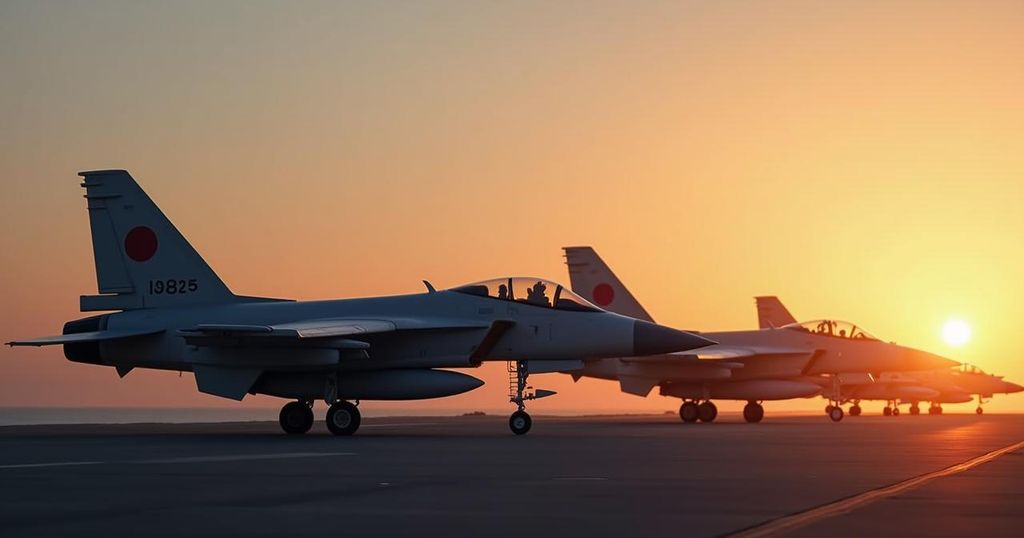Japan’s Air Self-Defense Force Prepares for Potential Evacuation from Lebanon

Japan has dispatched two C-2 transport planes to Lebanon to prepare for the possible evacuation of its nationals amid rising tensions between Israel and Hezbollah. Approximately 50 Japanese citizens are present in Lebanon, following the establishment of a 500-member task force as part of the Defense Ministry’s efforts in response to recent military actions in the region.
On Thursday, the Japan Air Self-Defense Force dispatched two C-2 transport planes from Miho Air Base in Tottori to enhance readiness for the potential evacuation of Japanese citizens from Lebanon amid escalating tensions between Israel and the Iranian-backed militant group Hezbollah. Approximately 50 Japanese nationals are currently located in Lebanon, prompting this precautionary measure by the government. The Japanese Defense Ministry has established a 500-member joint task force following instructions from former Defense Minister Minoru Kihara, who authorized the deployment on September 27. The ministry has also sought permission from various countries to traverse their airspace for this operation. In recent developments, Israeli forces initiated limited ground operations against Hezbollah, marking the first ground invasion of Lebanon since 2006. This increase in hostilities follows lethal detonations targeting Hezbollah operatives and Israeli airstrikes that resulted in the death of their leader, Hassan Nasrallah. In a retaliatory strike, Iran also launched ballistic missiles at Israel. Japan, with its reliance on crude oil from the Middle East, has consistently maintained a strategy of “balanced diplomacy” between Arab nations and Israel, its ally supported by the United States. Japan has previously carried out eight operations to airlift its citizens from conflict zones, including two missions from Israel during a recent escalation with Hamas.
The geopolitical landscape in Lebanon is currently characterized by heightened conflict, particularly between Israel and Hezbollah. This tension has arisen following various military actions, including Israeli ground operations and retaliatory strikes from Iran. The measures taken by Japan reflect its proactive stance on protecting its citizens abroad, further complicated by its economic dependencies on Middle Eastern oil exports. Japan’s historical approach to diplomacy in the region balances its relationships with both Arab nations and Israel. Through this event, one recognizes Japan’s commitment to ensuring the safety of its nationals amid international crises and conflicts.
In conclusion, the Japanese government’s decision to deploy Air Self-Defense Force aircraft is a strategic response to the critical situation in Lebanon, aimed at safeguarding its citizens amid growing regional instability. The involvement of the military underscores Japan’s commitment to protecting its nationals while navigating complex diplomatic relationships in the Middle East. The rapid escalation of violence between Israel and Hezbollah presents significant challenges, necessitating proactive measures as Japan continues to monitor the situation closely.
Original Source: english.kyodonews.net








